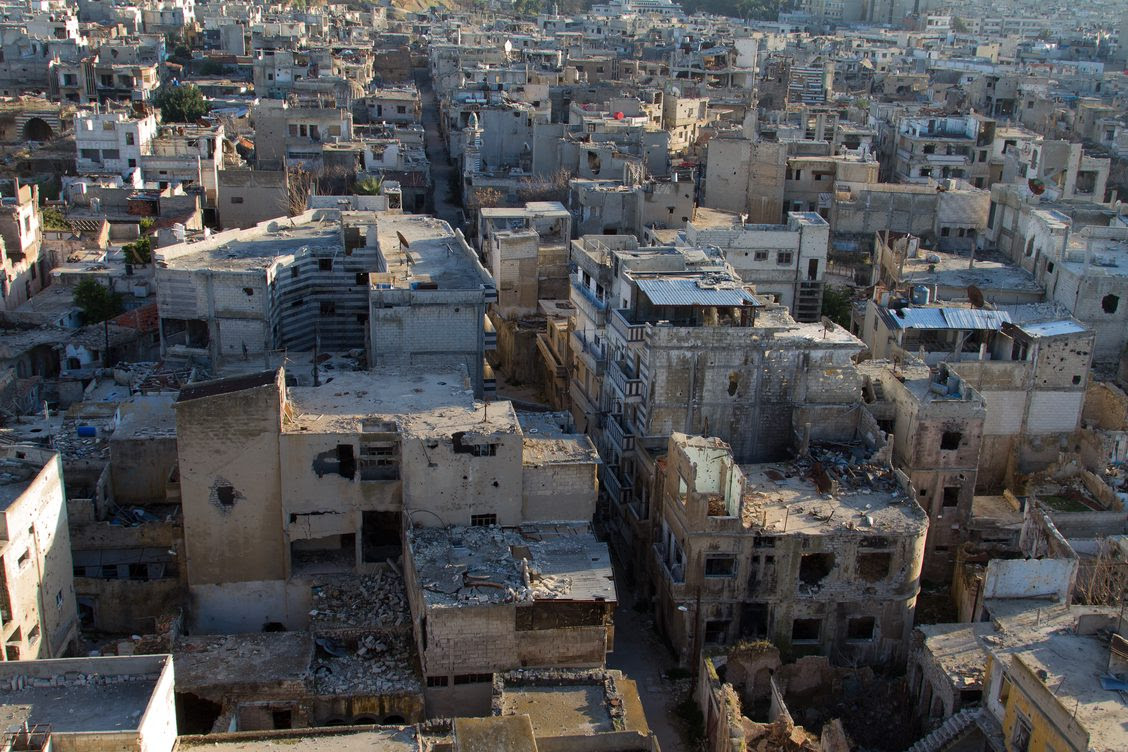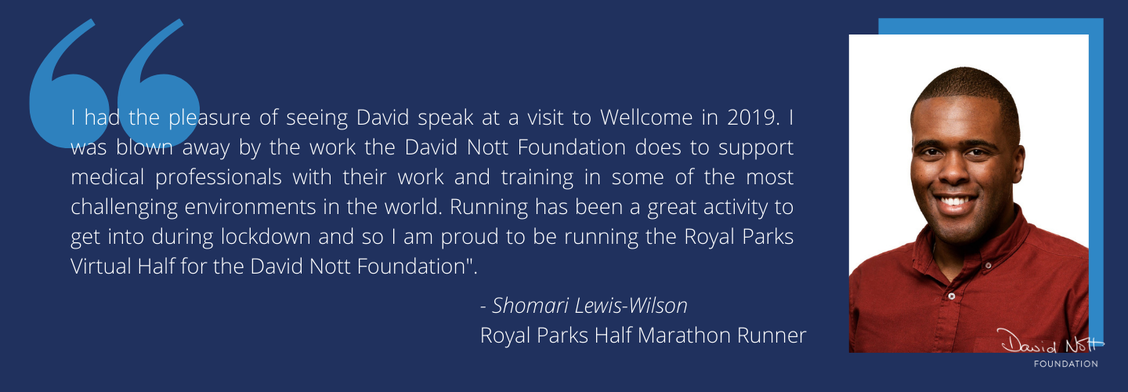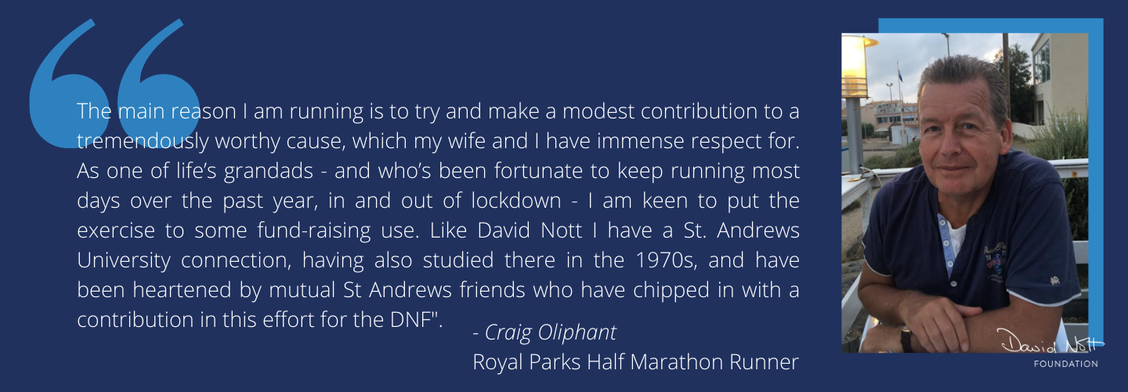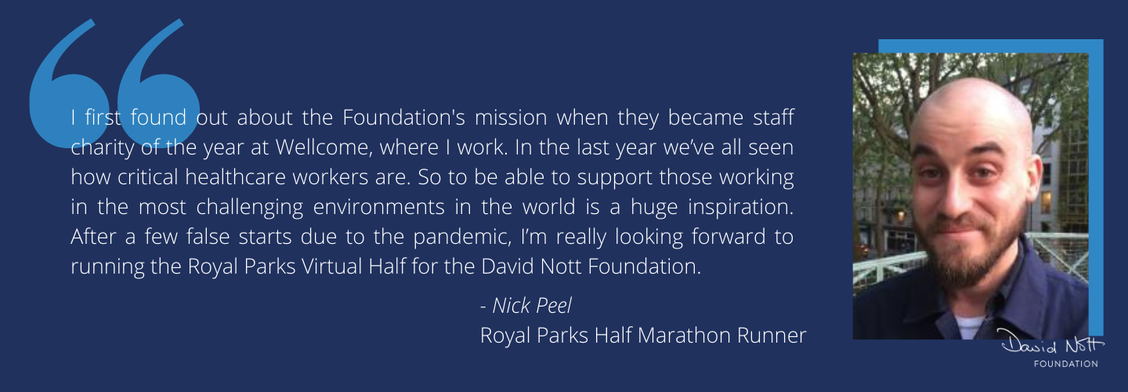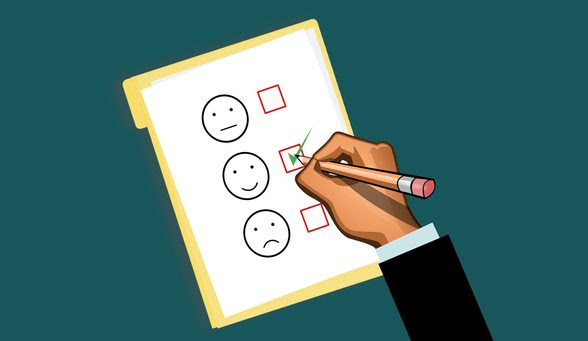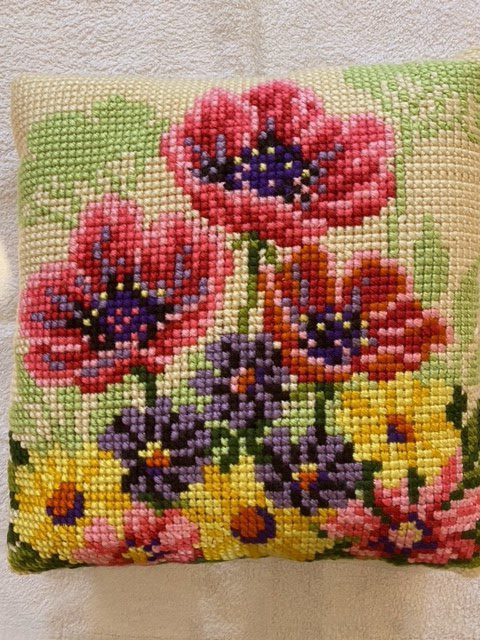Since the fall of the Assad regime in December 2024, Syria's borders have opened, and in April, our team of Faculty surgeons ran our first ever Hostile Environment Surgical Training in Aleppo.
Against a backdrop of destruction and severe shortages of even the most basic medical supplies, 24 surgeons travelled from Raqqa, Tartus, Idlib, Homs, Hama, Damascus and Al Suwayda to attend the course.
The surgeons – whose specialities included neuro, vascular, urology, orthopaedic, maxillofacial and general surgery - spent five days training with the Foundation’s Faculty members in the first HEST® training of this kind in Syria.
DNF partnered with Action for Humanity, UOSSM, the Syrian Ministry of Health and Aleppo University School of Medicine to run the course, which featured Heston® and other state of the art prosthetic training equipment. The training was delivered by our local Syrian Faculty in Arabic, and supported by UK Faculty leads Dr Ammar Darwish, Dr Pippa Letchworth, Dr Saladin Sawan and Dr Mahmoud Hariri.
Consultant Surgeons in Gynaecological Oncology Dr Pippa Letchworth and Dr Saladin Sawan ventured to Idlib during the HEST® course, where they spent 3 days and performed 10 operations on gynaecological cancer patients. The hospital was supported by SAMS.
Dr Sawan explained: "In addition to delivering this treatment to patients, we focused on enhancing knowledge decision making and surgical skill capabilities of doctors in Idlib with 4 consultants and about 13 residents."
Syrians have been through unimaginable hardship since the conflict began in 2011, and even since the fall of the regime, the situation has been dire.
Dr Mohammad Jazaely, a general surgeon from Damascus Hospital, Al-Mujthid, said: “The hardest experience I went through was on our liberation day on 8th December. There were many injuries, and we had to work with limited resources. In the span of 48 hours, we carried out around 40 laparotomies. Eventually, we ran out of resources. So, we had to make do with what we had.”
For Dr Jazaely, his commitment is unhindered despite the incredibly difficult conditions.
“I love working here, because at the end of the day, this is my country, and these are my people. For this reason, I must give everything I can, and I stayed here in the country."
Hospitals are dilapidated, dirty and crowded, with constant power cuts. There are very few anaesthetists in the country and there is a shortage of all surgical specialisms. Health care workers are exhausted, and morale is low. But Dr Jazaely explained the impact of the course.
"This is the first time we've had this kind of training in Syria, honestly. They're very high-level trainings. The reason is that the trainers are specialists in this field. They've worked hands-on in war zones across different regions."
Medical professionals are also facing a huge number of injuries as a result of landmines. Dr Mohammed Al-Sednawi, General Surgeon from Damascus said: “The most difficult situation we were working on was the landmine injury, because it affects a lot of civilian people, who weren’t involved in the war. So, they come to the emergency sector and they go to the operating room, where there were no resources, such as sutures, and a lot of decrease of resources and suction tubes — a lot of suffering in our operating room.”
Dr Abu Mohammadain, a urologist from Aleppo, worked with our Co-Founder David Nott over a decade ago when they worked together during his first visit to Syria in 2013, and again in 2014. "It was truly a major opportunity for us as surgeons. We didn’t have much experience with war injuries, disaster injuries, or trauma cases. And, thanks to God, the results of that direct engagement with Dr David were outstanding. It helped us save lives, improve patients' outcomes, and reduce disabilities caused by war injuries."
During this time, our Co-Founder was working alongside our Faculty member, Dr Mahmoud Hariri in Aleppo hospitals, risking their lives to save others. It was a seminal moment for him to run this course.
Dr Hariri said:
“This is a historical moment. This is the first course run in Aleppo. This is the first course that has been done for them - the first time seeing such type of demonstration, simulation, practical course rather than just theoretical information. I believe that such course should be run many times, until feeling that most of the surgeons have some experience in trauma cases in this country.”
Scoping mission to Syria
Syria’s health system is on the brink after 14 years of devastating conflict. But since the fall of the Assad regime in December last year, the country’s borders are now open, which provided a vital opportunity for members of our team to visit and see how we can best support the Syrian people in a surgical capacity as they rebuild.
Last month, our Co-Founder and Senior Advisor Elly Nott travelled to Syria with three of our Lead Faculty members, Ammar Darwish, Mahmoud Hariri and Saladin Sawan.
Over the course of five days, in every major Syrian city – Damascus, Hama, Homs, Aleppo and Idlib, they visited teaching hospitals and cancer hospitals, and had meetings with a wide variety of health directorates including the ministry of health and the UN Health Cluster.
They also had the chance to meet Faculty trained by our Foundation – the first in 2013 in eastern Aleppo, and the most recent in Idlib in November 2024. We have trained over 250 Syrian medical professionals in that period of time.
For Saladin Sawan, Consultant in Gynaecological Oncology, it was the first time he had visited Damascus since 2010. As he explains in his video here.
"The overwhelming happiness to be back in my home country was mixed with emotions of pain about the state of healthcare."

Shortage of surgical specialisms
Hospitals are dilapidated, dirty and crowded, with constant power cuts. There are very few anaesthetists in the country and there is a shortage of all surgical specialisms. Health care workers are exhausted, and morale is low.
Prior to an operation, patients are given a list and told to buy the syringes, dressings and sutures needed themselves. At the specialist cancer hospital in Damascus, two children share beds meant for one.
“There’s a desperate need for training our specialist colleagues – since over the last 10 -15 years there has been an arrested development. But there’s a wonderful opportunity for the DNF to play its role in helping to rebuild Syria with our expertise in surgical training.”
We have delivered over 10 HEST courses since the conflict began, and Dr Sawan also ran many courses in emergency care and obstetrics for doctors and midwives, including surgical missions to perform gynaecological surgery, and training surgical residents and specialists to screen for and treat women with cervical cancer.
“At the time we were worrying when the next bomb was going to happen, whether I’ll be hit while I’m in the operating theatre. But today was a peaceful day, no such a worry.”
For Elly Nott, it was an opportunity to visit the M1 hospital in Aleppo where her husband and Co-Founder David Nott, together with surgeons including Mahmoud Hariri and Ammar Darwish, risked their lives to save others.
“They spent many, many weeks with the doctors operating alongside them and training lots of them. It's where the David Nott Foundation was born and when we met, it's where I got my inspiration to start the charity that is now reaching its 10th birthday.”
“That's where we come in at the David Nott Foundation, because we've been training Syrian doctors in places like this for 14 years, and it's now time for us to take the next step and move forward with Syria as it seeks to rebuild this beautiful, proud nation."
We will continue to support the people of Syria with our HEST®, Frontline Obstetrics Courses, surgical missions, HEST UK® and HEST Anaesthesia™
Our Foundation remains committed to supporting Syria in the rebuilding of its health infrastructure at this critical time.
Strengthening trauma response in Northwest Syria
Northwest Syria continues to face escalating hostilities, compounded by regional conflicts that have intensified instability across the area. In October 2024, airstrikes targeting Idlib resulted in numerous casualties, reflecting the ongoing humanitarian crisis. Healthcare facilities, already strained by over a decade of conflict, are now bracing for an increase in trauma cases due to anticipated surges in violence.
Amid this dire backdrop, the World Health Organization (WHO) launched a Trauma Emergency Response and Preparedness (EPREP) plan to strengthen trauma care and emergency preparedness in Northwest Syria. Recognising the David Nott Foundation’s expertise in trauma training, WHO invited us to partner in their efforts to enhance local healthcare capacity. This initiative was generously funded by USAID, whose support has been instrumental in bringing this project to life.
We are honoured to contribute through the delivery of our renowned Hostile Environment Surgical Training (HEST) course, which WHO has identified as a “central pillar” of its trauma response strategy.

From collaboration to local leadership
From November 18 – 22, we delivered a specialised HEST course in Idlib, training 25 Syrian doctors. This marks a milestone in our partnership with WHO and our broader localisation efforts. Notably, this training was entirely led by our Syrian faculty, supported by UK-Syrian faculty members, emphasising the importance of building sustainable, local capacity.
“The new generation of surgeons must learn all of these skills delivered on our courses to save more lives” - Dr Mahmoud Hariri, faculty member
The training focused on equipping participants with critical skills in trauma response, including the management of blast injuries, gunshot wounds, and advanced surgical interventions required in conflict zones. This hands-on course, tailored to address the specific challenges of Northwest Syria, underscored the power of collaboration and the value of empowering local medical professionals to lead in their own communities.

Building resilience amid crises
This mission is part of WHO’s broader plan to enhance the capacity of Northwest Syria’s healthcare system, which prioritises equipping hospitals with essential supplies, creating dedicated triage areas, and improving coordination across trauma networks. Together, we aim to strengthen the region’s ability to respond to mass casualty incidents, ensure communities receive life-saving care during these volatile times, and work towards the sustainable development of the trauma system in Northwest Syria. Building on this foundation, we will continue to contribute to capacity-building efforts in the coming years, with plans to deliver HEST, HEST-A, and HEST-O&G courses early next year.
The devastating events of this past week in Northwest Syria, with fresh waves of airstrikes and escalating violence, have once again underscored the region’s urgent need for enhanced trauma care. We are humbled to have been there just days before, providing Syrian doctors with the life-saving skills they now rely on to manage the growing number of critically injured patients. Our training was not just a response to the immediate need but a long-term investment in the resilience and readiness of Syria’s healthcare system.
Find out more about our work in Syria
41 Syrian doctors upskilled to screen and treat women with cervical cancer
Dr Saladin Sawan, Consultant Surgeon in Gynaecological Oncology and one of our faculty trainers, recently returned from a surgical mission in Idlib, Syria, upskilling 41 surgical residents and specialists to screen for and treat women with cervical cancer. Here, Dr Sawan shares his hopes for healthcare and future training in northwest Syria.
Syria remains engulfed in a complex humanitarian crisis. Over a decade of conflict has forced more than 12 million people to flee their homes and left displaced communities with reduced access to food, shelter and protection.
Cancer under the radar
Due to a buckling healthcare system and greater focus on other urgent needs, many are not seeking or receiving the cancer screening, diagnosis or treatments they need. Medical professionals also face challenges with transferring patients over the border to Turkey, which means cancer patient numbers in-country are growing.
Cervical cancer is preventable and curable, as long as it is detected early and managed effectively. According to the World Health Organisation (WHO), it is the 4th most common form of cancer among women worldwide.
Our faculty trainer, Dr Saladin Sawan, travelled to Idlib to upskill Syrian surgeons to offer the best possible surgical care for patients with gynaecological cancers including cervical cancer.
“During my mission, I delivered gynaecology training to a group of doctors. Every day, we practiced surgical techniques. We used chicken thighs and a cutting-edge mannequin, provided by the David Nott Foundation, to practice performing cervical smears, colposcopies to assess the cervix for cancer or pre-cancer changes, and diagnostic punch biopsy, in addition to safely performing treatments for pre-cancer cell changes, in the form of loop excision (using heat to remove cells). Each doctor had hands-on practice and then we put skills to the test in operations.”

Dr Sawan trained 41 local doctors during the mission, which will improve cancer patient care while strengthening northwest Syria’s healthcare system in the long-term.
“I performed approximately 14 surgeries of different magnitude, some small procedures, some far more complex, for example radical hysterectomies for cervical cancer patients and debulking surgery for women with ovarian cancer. We used operations as teaching opportunities for local doctors – residents were assisting me and watching over my shoulder. We trained anywhere between three and seven obstetrics and gynaecology residents per day. Some doctors followed me, but I made it my goal to visit as many hospitals as I could to deliver training to those who could not travel. I was very happy.
I felt appreciated amongst a family of doctors and health professionals who looked after each other to deliver the best they could for their patients in some of the most difficult circumstances. I was certainly privileged to have had the chance to be with them.”
Eliminating cervical cancer
Due to ongoing conflict and accessibility issues, doctors in northwest Syria have limited access to training. The province also lacks a screening programme for cervical cancer prevention and early detection, leading to increased numbers of cases that require complex, radical surgery.
“WHO launched an Elimination of Cervical Cancer Elimination Initiative, which mainly targets low-income countries. The local doctors are really excited about establishing this program for women in Syria. They know the benefit, they believe in its value and importantly they feel it is only right to do since women disproportionately suffer the results of human papilloma virus infection which causes cervical cancer, unlike men. This would promote healthcare equity.”
In his training, Dr Sawan actively encouraged the local doctors not to fear making mistakes.
“Doctors become more confident and patients as a result will be safer. We strive for the doctors to test, try, play, make mistakes. The intention is that the doctors are more competent by the time they perform the operation on patients.
I am lucky to be part of the David Nott Foundation where the emphasis is also on building local expertise and sustainable care by training local health professionals in crisis areas. The donated equipment and surgical instruments meant I was able to deliver comprehensive training without compromises.”

Glimmers of peace
“Around me in Idlib, despite being in a region struck by war, there were people trying to rebuild their lives. Developing roads, restaurants opening, people moving into the city. People have started to live their lives – the dust of war settling and communities trying to get their lives back.”
Since Dr Sawan’s mission and apparent signs of a healing community, the Regime has targeted 45 cities and towns in four days, killing 52 and injuring over 240, according to an October recent report led by Assistance Coordination and Information Management Units (ACU, UMI). Despite glimmers of hope, northwest Syria remains in the thralls of conflict.
What’s next?
As unrest continues, the need for training and sharing of knowledge remains. We are committed to upskilling even more obstetric and paediatric residents in northwest Syria, but there’s much more to do.
“Outside of returning to deliver more surgical training, we also want to deliver dedicated cervical cancer screening training to residents,” shares Dr Sawan.
On-the-ground partners have also identified other, urgent areas of need.
“A local humanitarian organisation, the White Helmets, are looking to develop training for paramedics, including resuscitation and emergency obstetrics, gynaecology and neonate training. To make sure we provide the right training material for paramedics, we want to speak to them to understand exactly what their needs are in the field.”
We’ll continue to do all we can to support medical professionals in Syria.
“Seeing Syria again, despite its sadness, there’s still a sense of pride”
Dr Ammar Darwish has been part of the Foundation’s family for over a decade. Ammar volunteered as a trauma surgeon in Aleppo when Syria, his home country, was oppressed and targeted by the Assad Regime. There, he met our Co-Founder David, forming a brotherhood like no other. Here, Ammar shares how it felt to return to Syria to lead our earthquake surgical mission.
Faculty Lead: Dr Ammar Darwish. Faculty Trainers: Dr Pete Mathew, Dr Mahmoud Hariri
When I heard that an earthquake had struck northwest Syria and Türkiye, I was in Ukraine training doctors on the frontline of the Russian war. Colleagues from Syria were frantically calling loved ones seeking news. I knew then that we needed to find a way to reach the affected Syrians, as Syria’s already weakened healthcare system would buckle under further strain.
After the earthquake, it became clearer how essential it was that we reach Syria.
Thousands left with unattended injuries
We immediately started to receive reports from the ground that survivors were facing complex trauma wounds in huge numbers. Crush wounds, large, open injuries, serious infections that have led to the need for amputation. As we expected, there was and remains an enormous need for surgical training and support.
There was also a need for psychological support – hope, confidence, and to know that they are not alone.
Unfortunately, it took about a week before international aid entered northwest Syria to help victims. There were thousands of casualties and to have this delay, in an already crumbling healthcare system due to 12 years of war, was a disaster within a disaster for the Syrian people.

This devastating delay and the lack of equipment, medical supplies and resources meant that more people were suffering with severe injuries left untreated and many developed further complications as a result.
After humanitarian organisations were granted entry, we joined forces with Action for Humanity, formally Syria Relief, to plan a mission like no other. We wanted to use our time as effectively as possible, achieving as much as we could during a week-period.
Maximum impact
We delivered our world-class hostile environment surgical training (HEST) course in Arabic to local surgeons. We used our cutting-edge, one-of-a-kind teaching equipment, including our human wound simulator model, Heston, and printed vessels, kidneys, hearts and bowel, to arm them with skills for treating complex wounds.
This was our first course whereby 90% of it was delivered by local Syrian training faculty - surgeons we had trained during the conflict that started in 2011. It was a proud moment for the Foundation.

Feedback has been wonderful and encouraging – that our training is very important, their skills have improved, and they wished they’d had this training before.
We also upskilled and empowered 9 of the surgeons to become surgical trainers themselves so they could share their new, advanced skills with peers in their hospitals. They were very excited. We had approximately 23 trainees who received our HEST course, included newly qualified surgeons and other specialised surgeons from 9 hospitals in northwest Syria.
Action for Humanity worked all hours to get us safely into the country. They were outstanding and very well informed. It shows preparedness is really important for a smooth mission. They also led the operating side of our joint mission, performing surgeries on about 80 patients, including children, over 7 days. An exceptional feat, treating severe injuries from both the war and earthquake.
Proud to be home
Physically entering Syria was something else. Going back to Syria was a remarkably moving day for me. Crossing the border, seeing Syria again, with all the sadness and atrocities that have happened, there remains a sense of pride. It was a very special feeling.
Meeting the doctors and seeing those we’ve worked shoulder to shoulder with and trained before was very moving. Reunited after years, yet our bond remains the same. Even those who had not met David were asking about him – they are so keen to learn from him. It was a very, very emotional moment.

Welcomed with open arms
The Aqrabat Hospital, where we delivered our training, was fantastic. They changed the whole setting of the hospital to accommodate us and our course.
On the day we left, the hospital held an Arada for us, which is a typical Syrian parade and song to show us their gratitude for the work that has been done. Leaving Syria was quite emotional for everyone.
The need for surgery, training and support continues. The earthquake has put Syria back under the spotlight – and this time I hope it reminds in the public’s minds. We must work to restore Syria to its former glory, before the ravages of conflict and collapse.
We’ll be back to do our part.
Training Syrian doctors treating earthquake victims
We are joining forces with Action for Humanity (AfH) to train Syrian doctors in the surgical skills needed to treat and rehabilitate those injured in the recent earthquakes in northwest Syria and Türkiye.
New reports from UOSSM International confirm that many survivors are facing ongoing issues with serious wounds inflicted by the earthquake that require surgical attention.
To support doctors treating these injuries and prepare them for any future conflict or catastrophe-inflicted injuries, we are travelling to northern Syria to deliver our Hostile Environment Surgical Training (HEST) course. Over five days, around 30 Syrian doctors will be taught a broad range of surgical techniques that will help them treat complex wounds like those caused by the earthquake, such as crushed bones, large penetrating injuries, deep infection and amputations.
We will also train a cohort of Syrian surgeons to become surgical trainers and share knowledge with their peers, leaving a lasting, life-saving legacy in Syria long after we've left.

Action for Humanity provide aid and assistance to people affected by natural and man-made disasters and are partnering with us to run an operating mission in parallel to our teaching mission.
Together, we're calling for £100,000 donations to fund their joint earthquake surgical mission.
Professor David Nott, our Co-Founder, said:
“From my experience of volunteering in conflict and catastrophe zones for the past 30 years, I know communities can be left with devastating and complex injuries. What’s more, hospitals are facing limited resources, low blood stocks or reduced staff numbers.
Our surgical course is designed to educate doctors on the broad range of injuries seen in war and natural disaster, while empowering them with the skills needed to become competent trauma surgeons.
We’re also looking forward to helping some doctors become surgical trainers in their own right. Knowledge and networks are incredibly powerful. We hope it will help our Syrian friends heal from this tragedy.”

Elly Nott, our CEO and Co-Founder, said:
“The Syrian people have endured enormous hardship during almost thirteen years of conflict. The health system in northwest Syria was already fragmented and under strain, and there is no doubt this earthquake has stretched it even further.
The scale of this disaster demands international support that will have a lasting impact. We are honoured to be able to offer local doctors the opportunity to learn surgical skills that will help them better serve their own communities and heal the nation’s wounds.”
Othman Moqbel, CEO at Action for Humanity, said:
“Action for Humanity is once again honoured to be partnering with the David Nott Foundation for a surgical mission to Northwest Syria. Last month, after the devastating earthquakes claimed thousands of lives and flattened entire towns and villages, thousands were left with horrific injuries which require surgical intervention.
Before the earthquakes, this region was already facing an emergency of an unimaginable scale, now we have seen yet more disaster unfold and more need for medical support. Syria’s healthcare infrastructure has been decimated by 12 years of conflict, that is why medical care has been at the core of our work inside Syria for over a decade.
Together with our friends at the David Nott Foundation, we are calling on our supporters to help us send teams of experienced doctors to the region to volunteer their surgical skills and support in training of doctors on the ground. Through surgical education, we want to create a network of doctors, ready to help their communities recover from this tragedy.”
Support our earthquake mission today
Earthquake causes widespread devastation in Turkey and Syria
We are appalled by the devastating earthquake which struck northwest Syria and southern Turkey. It is apparent that there has been destruction on an enormous scale and a correspondingly huge loss of life.
The people of northwest Syria have endured enormous hardship during almost thirteen years of conflict. The health system in northwest Syria was already fragmented and under strain and this will stretch it even further.
Rescue efforts have been mounted by the White Helmets and the locally-led NGOs that have sustained the northwest for the past decade have commenced a humanitarian response. The scale of the disaster demands an international response, yet in northwest Syria there is no state capacity to resource and lead it. All efforts must be made to keep aid travelling swiftly through the Bab al-Hawa crossing, the last UN-mandated border crossing between Turkey and northwest Syria.
Our Foundation is deeply proud of the close links we have with Syrian healthcare workers. In Gaziantep, Idlib and Aleppo, we have trained Syrian doctors in both lecture and operating theatres. We stand in solidarity with all those in Turkey and Syria affected by this catastrophe and are ready to help in whatever way is constructive and helpful to our partners.
From underground hospitals in Syria to training in Gaziantep
For the first time, we delivered two surgical training courses over a four-week period in different countries. Our latest course was for Syrian doctors in the Turkish city of Gaziantep, some of whom had worked together in hospitals in Aleppo between 2011 and 2016.

After a memorable course at Edna Adan Hospital in Somaliland, we partnered with Syria Relief to train 26 healthcare professionals in Gaziantep.
A Turkish city near the border with Syria, Gaziantep is home to a number of doctors who know the destruction of war all too well. Many were forcibly displaced from Syria by conflict and some had operated with David in underground hospitals when eastern Aleppo faced military bombardment and siege.
Unbreakable bonds
When the Syrian government, with Russian air support, began targeting medical workers and healthcare facilities, doctors started treating patients in secret hospitals with extremely limited resources. David travelled to Aleppo to help the doctors manage complex injuries and save lives. His sharing of surgical knowledge often led to life-long bonds with those he taught.
Dr Mahmoud Hariri from Aleppo shares: “I first met David in 2013. He came to us in Aleppo, and we learned many things. We learned to be multi-tasking surgeons. I can now do surgery on the kidney, heart, vessels. This is the notion of the multi-tasking doctor. A lot of lives have been saved.”
Dr Hariri and 25 others joined our Gaziantep course with the help of our Course Director Dr Ammar Darwish and the Syrian Board of Medical Specialties (SBOMS), an organisation dedicated to helping Syrian medics work as specialised doctors in northern regions of Syria.
Trainees becoming trainers
The course was taught by accomplished Faculty - some who had learned from David in Syria or during a previous HEST course - and were now excellent surgical teachers.
Helping trainees become trainers is what we are here for. We want to empower doctors within countries affected by conflict and catastrophe to be surgical and health system leaders, serving their own communities.
The group learned how to manage and treat complex war wounds, such as blast injuries, gaping holes in the body, or deep burns. They also learned what to prioritise when faced with multiple wounds, the majority of which they will never have seen during standard medical training.

New skills in practice
Others on the course had also worked with David in conflict. Dr Ehab Baydak, a maxillofacial surgeon from Idlib, Syria, saved a man’s life with David’s help over skype. Since then, Dr Baydak has put his skills to practice in his community.

“During the siege of Aleppo, I was working in an underground hospital and received a patient whose face was severely injured from a bombing. We hadn’t seen this type of injury before and didn’t know how to deal with this,” Dr Baydak shares.
“Due to the siege, we couldn’t transfer patients outside of the city. Dr Murhaf Assaf and I contacted David who talked us through how to do the operation over Skype.
After the Syrian regime took control of Aleppo, I moved back to Idlib to be with my family. There, I came across the same injury, and I was able to do the surgical procedure alone – all because of my experience with David.”
Our courses teach healthcare professionals how to perform procedures just like this – operations that David has undertaken in war zones over 30 years of voluntary humanitarian work. We were honoured to contribute to the surgical education of 26 doctors in Gaziantep, giving them the skills needed to save lives and limbs against the odds.
April 2021 Newsletter: 10 Years of Conflict in Syria

10 Years of Conflict in Syria
Welcome to the David Nott Foundation’s April update. To those observing, we hope that you had a restful Easter and were able to come together with loved ones to celebrate. Today, we at the Foundation have been profoundly saddened by the new that His Royal Highness The Prince Philip has passed away. We wish to express our deepest condolences to Her Majesty The Queen, and the Royal Family. It has now been ten years since the civil war erupted in Syria. The price paid over the last terrible decade by Syrian civilians is incalculable, and millions still reside in vulnerable, crowded camps. Children have lost schools, friends and family members. So many thousands have lost their homes, businesses and loved ones. Hospitals, deliberately targeted by the Syrian regime now struggle to cope with the COVID-19 pandemic. As a show of solidarity with the Syrian people, the David Nott Foundation dedicated our social media accounts to small NGOs, individuals, civilians, humanitarians and journalists who have lived experience of the civil war. We hoped to provide a platform through which to amplify these voices. We encourage you to look back through our Tweets and Re-Tweets (@NottFoundation) to read first-hand accounts of the atrocities and reflect on the profound loss that we all feel after ten years of conflict. The David Nott Foundation has taken our HEST course to Syrian surgeons before, and plans to again soon. You can view an interactive map of where we have taken our training course by visiting the ‘Overseas Course’ section of our website. Good luck to our RPHM RunnersWhile we’re on the subject of challenge running events, the Foundation would like to wish good luck to our Royal Parks Virtual Half Marathon runners for the 11th of April. We asked some of those competing to raise money for the DNF what inspired them to do so:
|
||||||||||||||||||||||||












